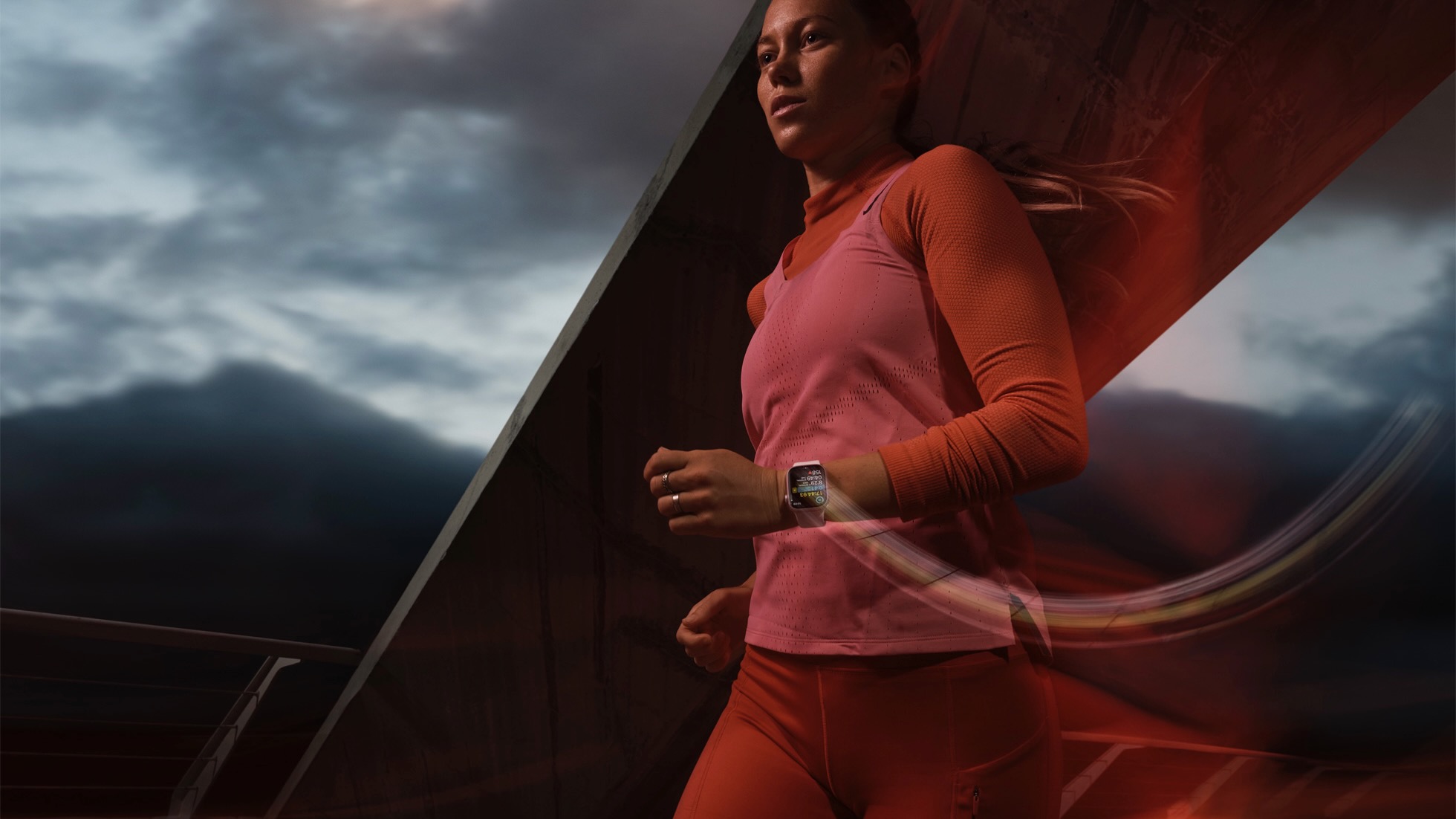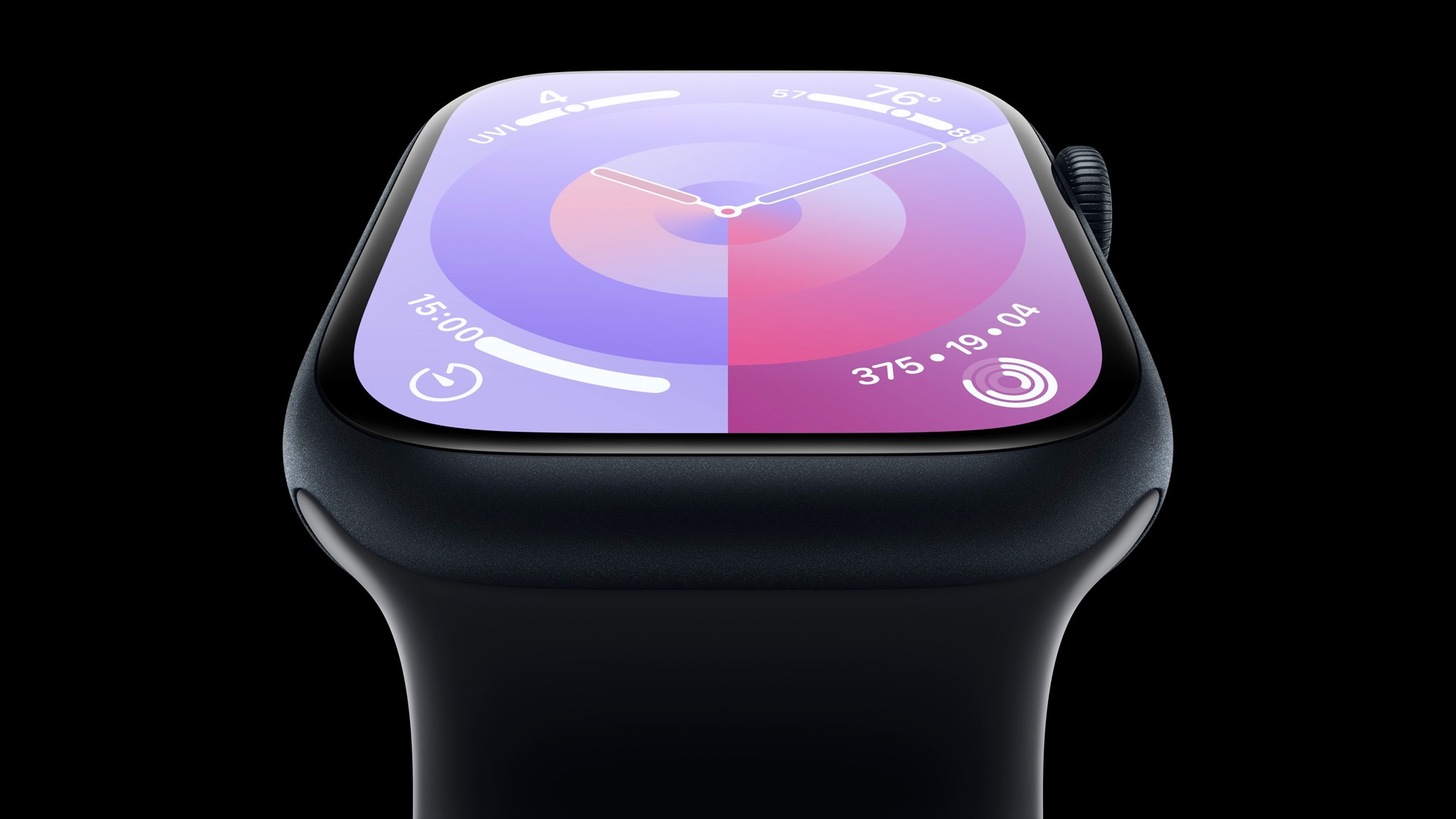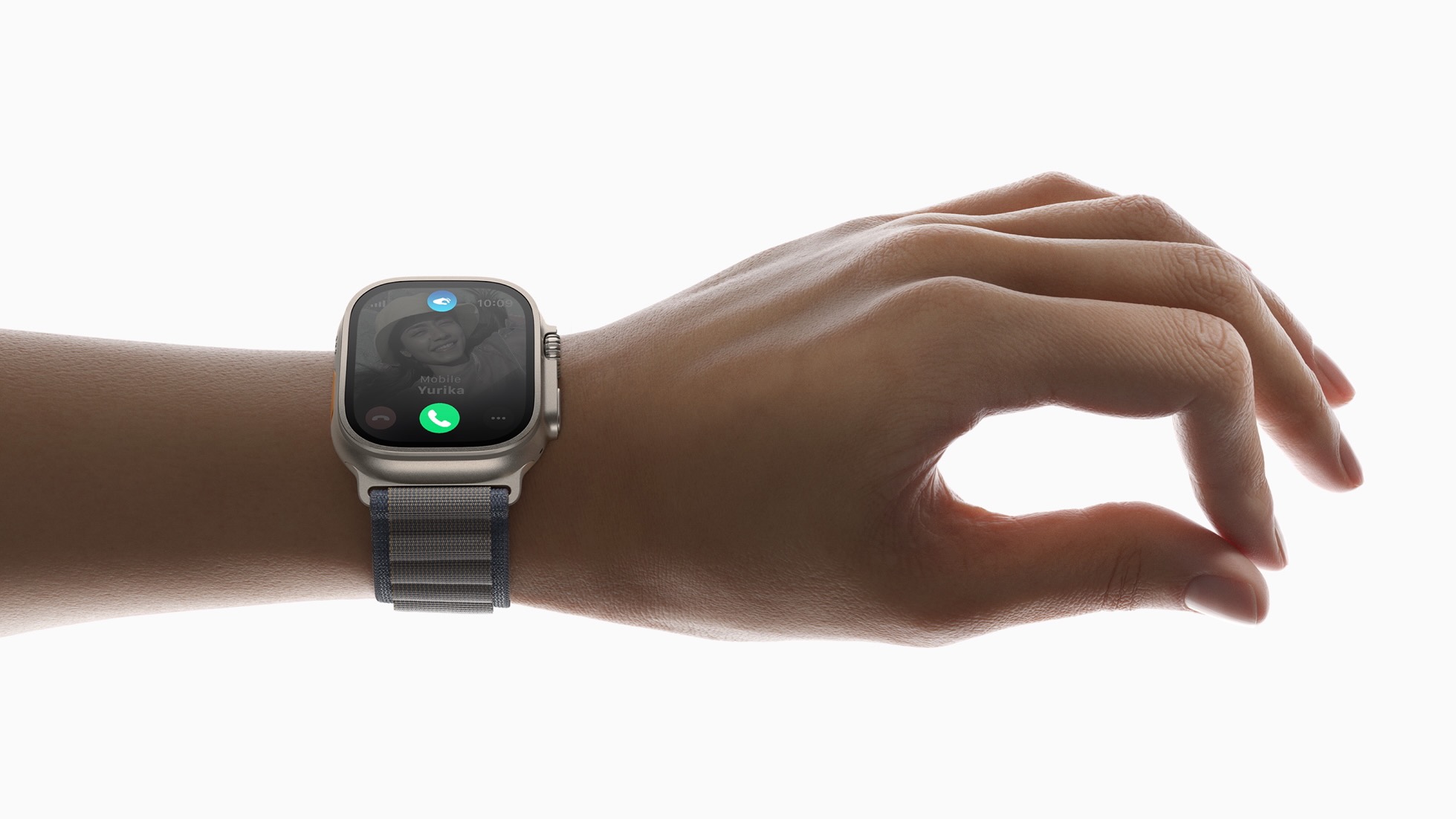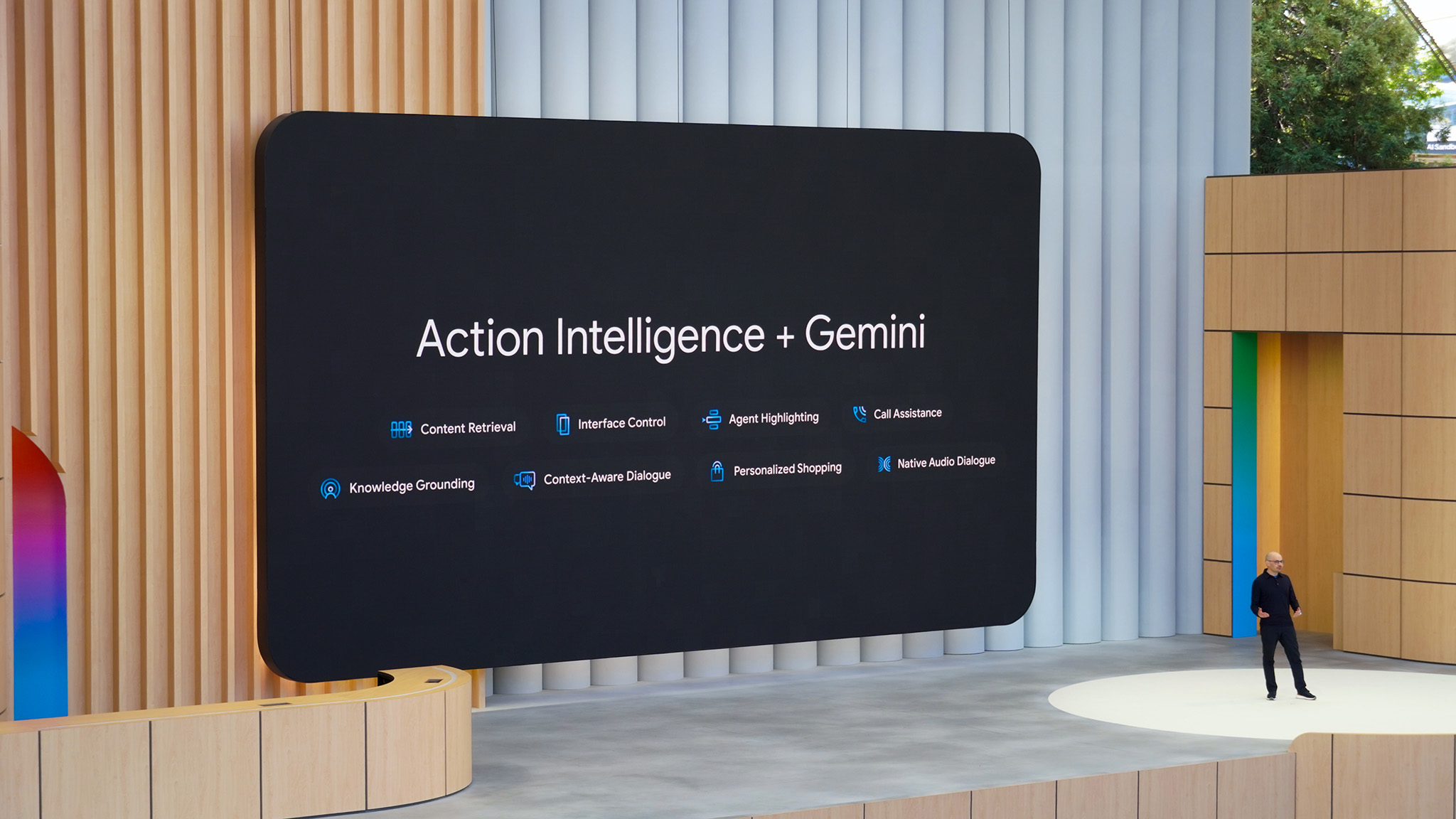I'm disappointed by one missing Apple Watch Series 9 feature
Apple is a trend-setter for fitness on mainstream watches, including for GPS accuracy... but only on the Apple Watch Ultra 2.

More and more fitness brands have added multi-system or multi-band GPS tracking to their watches. That includes Apple, which bundled dual-frequency GPS into the Apple Watch Ultra and Ultra 2. But we're still waiting for the first mainstream smartwatch to add more accurate location tracking. I'd hoped the Series 9 would start a new trend; instead, we have to settle for another GPS-only watch.
Most GPS-only smartwatches are objectively unreliable for location tracking; the longer you run, the further your actual and tracked mileage will diverge, as signal blockage or latency warps your results. Meanwhile, fitness brands like Amazfit, COROS, and Garmin have begun adding more accurate GPS chipsets in watches well below the Apple Watch Series 9's $400 price point.

In his weekly column, our Senior Editor of Wearables and Fitness Michael Hicks talks about the world of wearables, apps, and fitness tech related to running and health, in his quest to get faster and more fit.
The truth about GPS accuracy is actually more complicated. I've tested several dual-frequency GPS watches that struggle to properly track my path, while some GPS-only watches are very precise... in ideal conditions.
We won't be able to properly judge the Apple Watch Series 9's accuracy until our review. Although we haven't tested the Series 8 ourselves, we know that it doesn't use your iPhone's GPS data like the Series 7 and older models did. Plus, I've read reputable sources that claim the Series 8 GPS is decently trustworthy (though worse than the Ultra). The same should apply to the Series 9, in theory.
Once the Apple Watch, Pixel Watch, or Galaxy Watch add dual-frequency tracking, the rest will follow.
Here's why I'm disappointed: Even though Apple has a well-deserved reputation for copying features from Android, the last couple of watchOS fitness updates have pressed well beyond Android, challenging fitness brands like Garmin at their own game. Now it's Samsung that's lagging behind and copying Apple with its latest Samsung Health tools.
Given that inaccurate GPS data was one of my biggest hang-ups when reviewing the Galaxy Watch 6, I really wanted Apple to put pressure on Samsung, Google/Fitbit, and the other mainline smartwatch makers by adding dual-frequency GPS to the Apple Watch Series 9. All it takes is one to do it, and the rest will follow.
Instead, Apple is tacitly claiming that more accurate GPS is an Ultra-level feature instead of what should be the new normal.
Get the latest news from Android Central, your trusted companion in the world of Android
Why dual-frequency GPS or all-systems GNSS matter

The Apple Watch Series 9, like its predecessors, supports five global navigation satellite systems (GNSS): GPS, GLONASS, GALILEO, QZSS, and BeiDou. Like most smartwatches, it only uses one system at a time, related to wherever you live; even though GPS works in Europe, for instance, you'll likely get more focused results with GALILEO or GLONASS.
All-systems tracking is a new trend with fitness brands like Garmin and COROS, relying on any nearby satellite signals regardless of the system. If a GPS satellite signal is obstructed by a nearby mountain or building, a different system's satellite may have a better angle and reacquire your position more quickly.
Then, you have dual-frequency or multi-band GPS. GPS relies on older L1 satellites that provide a very accurate signal in unobstructed areas but will stray well off your position when foliage, reflected signals off of large structures, or atmospheric errors disrupt them. That's why fitness watches rely on L5 GPS signals.
This gps.gov page describes how L5 delivers "the most advanced civilian GPS signal," with a more powerful signal that auto-corrects for any obstructions. It's still "pre-operational" because L5 is still rolling out and there aren't enough satellites for total coverage. Thankfully, L1 satellites are still there as a backup if L5s aren't around.
The end goal is "sub-meter accuracy" using a technique called "trilaning," which employs L1, L2, and L5 frequencies simultaneously (L2 is another pre-operational system). But for now, dual-frequency is the best system we've seen on a smartwatch.
Garmin says that its multi-band system delivers "consistent track logs, improved positioning, improved multi-path errors, and fewer atmospheric errors." The only downside is that it burns through battery at about twice the rate as GPS-only tracking, while All-Systems mode falls between the two.
Does the Apple Watch Series 9 need dual-frequency GPS?

I can't find an official Apple GPS explainer, but this piece on the Apple Watch Ultra's GPS accuracy from The Verge's Victoria Song contains quotes from Rob Mayor, Apple’s director of motion and location technologies, about how its positioning system goes beyond satellites.
Specifically, Mayor says that the Apple Watch Ultra "can acquire GPS more quickly by leveraging Wi-Fi access points and cell-tower locations to get a rough idea of your location and figure out which satellites to look for."
Of course, the Ultra have cellular data built-in; maybe the Apple Watch Series 9 GPS + Cellular can do something similar, since otherwise, the Series 9 would need the iPhone 15 as a medium to pull a similar trick. Maybe the stock watch can key in on Wi-Fi access points in urban areas, but it's possible that only the Ultra 2 can do this.
Apple uses software tricks to compensate for any GPS inaccuracies.
Mayor also said that the Apple Watch Ultra uses Apple Maps data to ensure that "your route summary isn’t going to say you’re running through a river or magically ghosting through buildings." Plus, all of the recent Apple Watches can auto-recognize it when you reach a track and which lane you're in.
To summarize, Apple knows that GPS data isn't always accurate and uses its software tricks and Maps to compensate for that — though I'm unsure if it corrects your location in real-time or in the Apple Health summary retroactively, which feels a bit like cheating. Only the Apple Watch Ultra 2 has the L5 signal to give you better results from the start, but in theory, the Series 9 can make up some lost ground.
Since the Apple Watch Series 9 has a 7-hour GPS estimate, I'll assume (very unscientifically) that it would last 3.5–4 hours in dual-band mode if it had the ability. Maybe Apple decided that this feature would burn through the Series 9's meager battery and frustrate users who would otherwise assume their data is correct by default. Ignorance is bliss, right?
For more hardcore fitness lovers concerned about accuracy, they can just upsell themselves to the Apple Watch Ultra 2. Problem solved!
Waiting on a trend-setter

I don't think it's fair to expect people who live in urban sprawls or woodland areas to spend $800 on the Apple Watch Ultra 2 just for more accurate location tracking. Not when the $200 Amazfit GTR 4, $230 COROS PACE 3, and $350 Garmin Forerunner 255 all offer dual-band positioning.
Yes, you can just buy a fitness smartwatch if that matters to you. But I've received several emails and comments from readers of my Garmin reviews saying they like all of the fitness tools but just can't give up on the smarts and deep phone integration you get with an Apple or Samsung watch.
Location accuracy shouldn't be a niche tool; it should be the norm.
And location accuracy matters! Most GPS-only watches I've tested tend to underreport my distance, so if I want to run a 5K-length practice run, it'll tell me to run an extra minute just to hit that distance compared to a dual-band watch. That skews my results, pushing me to run harder than intended to hit my target pace and then giving me a lower VO2 Max score because I worked so hard for a "slow" result.
This also applies to every Wear OS watch. The Galaxy Watch 6 disappointed me for location accuracy, and I'll be genuinely surprised if the upcoming Pixel Watch 2 with built-in Fitbit can search for L5 satellites. They're all coasting along, waiting for someone else to make the first move.
When I pick a watch, I tend to focus on the best GPS-accuracy watches over smarts because I know that over- or undertraining without realizing it is a danger. But if mainstream, reasonably priced smartwatches — like the future Apple Watch Series 10 or Galaxy Watch 7 — started offering better GPS accuracy, I think more athletes would find them tempting.

Michael is Android Central's resident expert on wearables and fitness. Before joining Android Central, he freelanced for years at Techradar, Wareable, Windows Central, and Digital Trends. Channeling his love of running, he established himself as an expert on fitness watches, testing and reviewing models from Garmin, Fitbit, Samsung, Apple, COROS, Polar, Amazfit, Suunto, and more.
